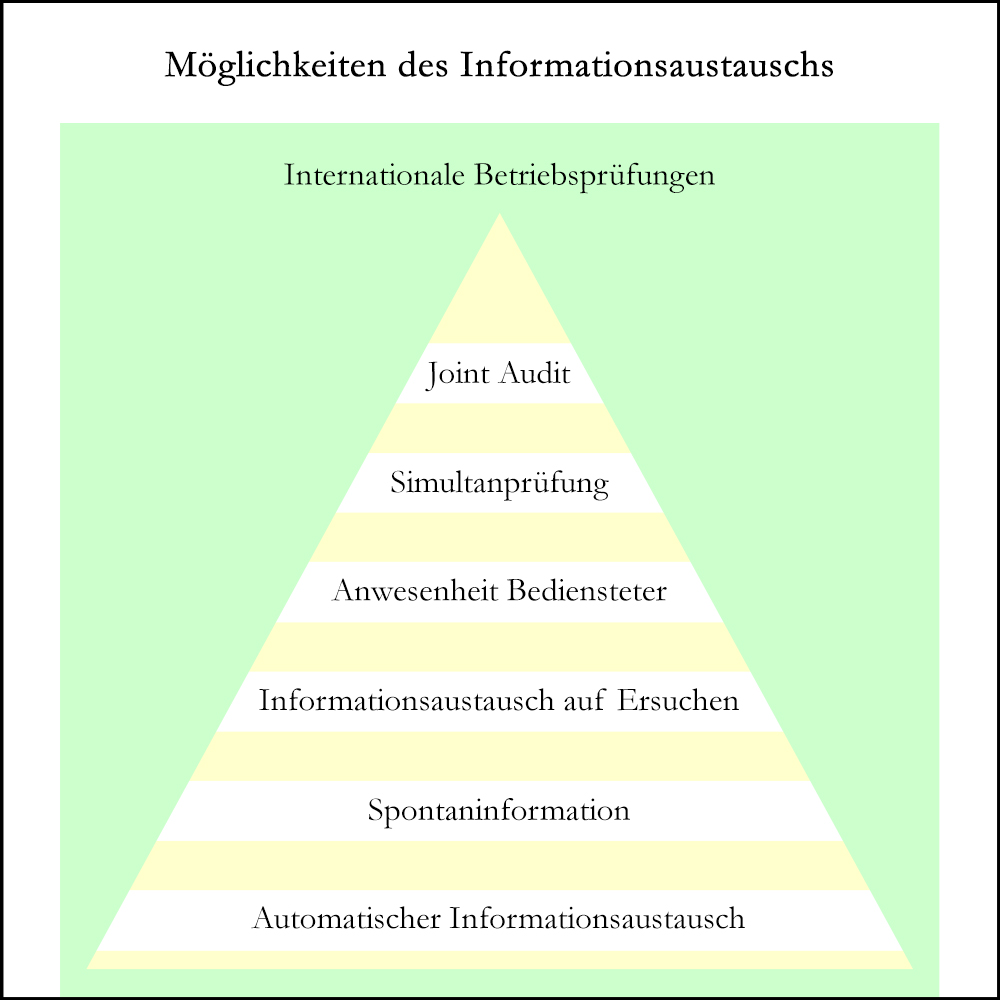
The Center for International Tax Audits is a central contact and service point for the main tax audit offices of the tax authorities, the Central Group Audit Office in Stuttgart, the Federal Central Tax Office (BZSt) and the Federal Ministry of Finance (BMF) as well as for companies and foreign tax administrations.
The ZiBp BW aims to publicize and promote the use of coordinated cross-border tax audits. One focus of its activities is the support of simultaneous external audits (simultaneous audits) and joint external audits (joint audits). The Baden-Württemberg tax authorities carry out coordinated external audits with all countries, insofar as this is legally and politically possible.
This results in the following fields of activity:
- Maintaining contact with the domestic and foreign tax authorities involved
- Coordination and transmission of audit requests to the BZSt
- Supporting coordinated tax audits
- Organization of and participation in specialist events, public relations work
- Improving the framework conditions for coordinated external audits
- Ensuring uniform coordination
- Intensifying cooperation with foreign tax administrations
- Elimination or reduction of bureaucratic hurdles
- Establishment of coordinated external audits as a suitable means of avoiding taxation conflicts
There are several ways of exchanging information between the authorities of different countries. Joint audits are the strongest means of international cooperation between tax authorities. In contrast, the automatic exchange of information is the weakest form of international cooperation.
Coordinated tax audit is a generic term for simultaneous audits and joint tax audits, which are also referred to as joint audits. In international parlance, coordinated tax audits in which several countries participate are also referred to as multilateral control (MLC).

Joint audits / joint audits
In joint audits, an audit team consisting of German and foreign auditors is formed. The team audits the company together and the meetings of this bi- or multinational audit team usually take place alternately in all participating countries. Joint audits can involve only two countries (bilateral joint audit) or several countries (multilateral joint audit).
Simultaneous examinations
Two or more countries audit a multinational company at the same time and exchange the information obtained on the basis of the EU Administrative Assistance Act or the respective double taxation agreements.
Presence of staff
On the basis of the relevant international agreements, foreign officials in Germany and German officials abroad may be present on official premises and during investigations.
Exchange of information upon request
On the basis of the respective multilateral agreements, information is exchanged after one state has requested the other by way of international administrative assistance.
Spontaneous information
On the basis of the respective multilateral agreements, states can spontaneously transmit information to each other if this may be relevant for tax purposes for the other state. This type of information exchange is carried out if the transmitting state is in possession of such information. An application for administrative assistance is not required.
Automatic exchange of information
On the basis of the respective multilateral agreements, countries transfer tax-relevant information to each other on certain topics. This exchange of information takes place automatically without the need to submit a request for administrative assistance.
Advantages for companies
- Legal certainty and planning security at an early stage
- Double taxation can be avoided
Advantages for the administration
- Quick assurance of correct taxation, shorter procedures
- Double non-taxation can be avoided
Common advantages for the administration and companies
- Avoidance of lengthy mutual agreement procedures
- Fast, comprehensive and uniform clarification of facts
- Rapid tax audits
Initiation by the domestic tax audit (possibly also at the suggestion of the company)
a) Preparation phase
- Forwarding of the examination request to the ZiBp BW. The ZiBp BW reviews the proposal and agrees on forwarding it to the BZSt.
- Consultation with the company in accordance with Sections 117 (4) and 91 (1) of the German Fiscal Code (AO) by the responsible tax office. Ideally, the company gives its consent to active auditing activities by employees of the foreign tax administration in Germany in accordance with Section 10 (3) of the EU Administrative Assistance Act (EUAHiG).
- The BZSt agrees the proposal with the foreign central liaison office, gives the state officials involved responsibility for exchanging information and provides the tax auditors with an audit coordinator.
b) Audit phase
- Kick-off meeting, development of an audit concept by the multinational audit team.
- Audit activities of the multinational team.
- Closure of the case, final meeting - ideally an agreement has been reached.
c) Implementation phase
- Preparation of a joint final report.
- Procedural and substantive implementation of the results at national level.
Initiation by a foreign tax authority
a) Preparation phase
- Receipt of the audit request by the BZSt and forwarding to the ZiBp BW, which coordinates the further procedure with the responsible tax office.
- Hearing of the company in accordance with §§ 117 Para. 4, 91 Para. 1 of the German Fiscal Code by the responsible tax office. Ideally, the company gives its consent to active auditing activities by employees of the foreign tax administration in Germany in accordance with Section 10 (3) EUAHiG
- The BZSt agrees the proposal with the foreign central liaison office, gives the state officials involved responsibility for exchanging information and provides the tax auditors with an audit coordinator.
b) Audit phase
- Kick-off meeting, development of an audit concept by the multinational audit team.
- Audit activities of the multinational team.
- Closure of the case, final meeting - ideally an agreement has been reached.
c) Implementation phase
- Preparation of a joint final report.
- Procedural and substantive implementation of the results at national level.
Domestic tax audit
As with a national tax audit, the legal basis is §§ 193 ff. AO.
Joint audits with EU member states
The legal basis for joint audits is Directive 2011/16/EU of 15.02.2011, which was transposed into national law by the Act on the Implementation of Mutual Administrative Assistance in Tax Matters between the Member States of the European Union(EU Administrative Assistance Act - EUAHiG). Joint audits are to be carried out on the basis of Section 12 EUAHiG in conjunction with Sections 10, 11 EUAHiG. §§ 10, 11 EUAHiG.
Joint audits with third countries
Joint audits with third countries are possible on the basis of the respective double taxation agreements (DTAs). These must contain an information clause that corresponds to Art. 26 of the OECD Model Tax Convention for DTAs. Joint audits with third countries are also possible in accordance with Articles 8 and 9 of the Administrative Assistance Convention of 16.07.2015.
Further information can be found in the fact sheet on coordinated external tax audits(BMF letter dated 09.01.2017, BStBl. I2017, 89 and in the fact sheet on intergovernmental administrative assistance through the exchange of information in tax matters(BMF letter dated May 29, 2019, BStBl. I 2019, 480).
The BZSt is the authority responsible for the international exchange of information. The transmission of an audit proposal abroad and the subsequent communication takes place via the BZSt.
An audit coordinator from the BZSt is always present during the joint audit. The audit itself is carried out by the Baden-Württemberg state officials and their foreign colleagues.
Conducting a joint audit is always a good idea if tax conflicts can be resolved quickly by all the tax authorities involved sitting around the same table. Ideally, the emergence of a taxation conflict can already be prevented through direct cooperation.
The following topics are often the subject of a joint audit:
- Transfer pricing
- Questions regarding the existence of a permanent establishment
- Transfer of functions
- Cross-border tax structuring and tax avoidance models such as
- hybrid companies and financial instruments
- Use of letterbox companies
- Financing models between affiliated companies that lead to a reduction in the tax base in Germany
- Attempts to reach agreement on corrections by foreign tax authorities

